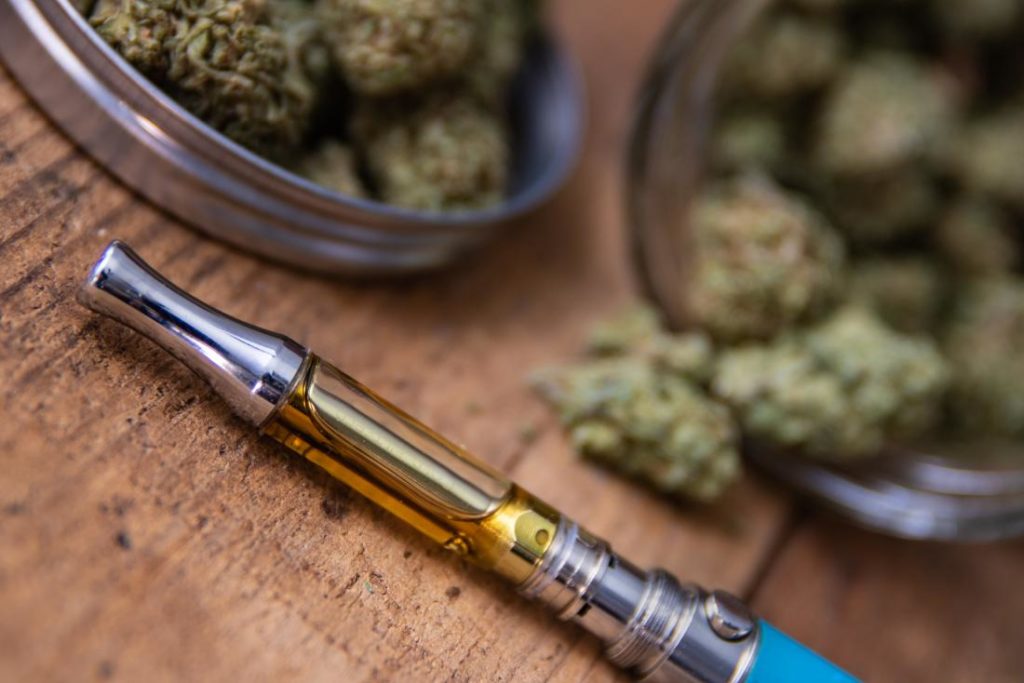When most people search for cannabis supplements, they tend to focus on CBD, which is the non-stimulating substance in marijuana. However, THC has several proven health benefits that should not be overlooked and can promote health when used properly.
THC has been shown to reduce nausea, vomiting, and chronic pain, and benefit sleep and quality of life among the chronically ill. Additionally, many people enjoy the high that accompanies it. In this guide, we will discuss the benefits of THC and how to use it.
What is THC?
According to the National Center for Complementary and Integrative Health, many people use the terms marijuana and cannabis interchangeably, but they do not always mean the same thing. Cannabis refers to all products that can be derived from the Cannabis sativa plant.
On the other hand, marijuana refers to only the parts of the Cannabis sativa plant that contain substantial amounts of THC. THC, which is short for tetrahydrocannabinol, is one of two primary cannabinoids found in the cannabis plant – CBD is the other one. THC is the part of the marijauana plant that is responsible for affecting a person’s mental state.
Research shows that there are over 100 other bioactive compounds found in marijauan aside from THC and CBD. THC tends to get a bad rap for being the compound that makes you feel high, and many CBD products are advertised with low THC levels to improve health.
However, THC has a wide variety of proven health benefits that shouldn’t be overlooked, and its effect on mental health can help reduce anxiety, pain, and depression when taken correctly.
Health Benefits of THC
Here are some of the top health benefits of THC:
1. It helps reduce pain (including migraines)
Many people use marijuana to reduce chronic pain in place of stronger, more dangerous drugs, such as opioids, and research shows that THC plays a major role in pain management.
According to one study, subjects with fibromyalgia – a chronic condition characterized by distinct mechanical hyperalgesia and chronic pain – reported significant benefits in pain management after THC treatment.
Other research shows that THC treatment may be useful at relieving intestinal pain associated with irritable bowel syndrome. THC also has anti-inflammatory benefits, which is useful for conditions like inflammatory bowel disease (Crohn’s disease and ulcerative colitis).
Another study indicated that THC can also help improve pain associated with migraines and arthritis, and it makes a good alternative to NSAIDs, which have been linked to intestinal bleeding.
Here are some other scenarios in which THC may benefit pain:
- HIV neuropathy
- Chronic neuropathic pain
- Pain due to multiple sclerosis (MS) spasms
- Post-operative pain
- Neurogenic pain
- Chronic intractable pain
- Brachial plexus avulsion
- Pain after spinal injuries
- Cancer pain
- Lower urinary tract pain in MS patients
2. It has neuroprotective properties
THC has neuroprotective antioxidant properties that may be able to protect against dementia, according to some research. One study indicated that cannabinoids have been shown to interact with neurotransmitter systems that have been implicated in the manifestation of Neuropsychiatric symptoms. However, their mechanism of action in dementia is not clear.
Research shows that medical marijuana may be effective at treating the following symptoms associated with dementia:
- Agitation
- Disinhibition
- Irritability
- Aberrant Motor Behaviour
- Nocturnal Behaviour Disorders
- Aberrant Vocalization And Resting Care
One study indicated that THC can remove toxic lumps of amyloid beta proteins in the brain, which are believed to lead to Alzheimer’s disease – suggesting that THC can have a protective effect against dementia.
3. It can improve sleep and anxiety
Many people wish they could sleep better and reduce their stress levels. THC can help with both.
According to one study, a molecule that is made in the brain that activates the same receptors as marijuana protects against stress by reducing connections that cause anxiety between two parts of the brain.
In other words, THC can help mediate the parts of your brain that perceive stress. The same goes for sleep. One study found that THC can help decrease sleep latency to help you get to sleep faster.
How To Use THC
There are many ways to take THC. If you are using THC to reduce pain, then start by taking small amounts at night, which can also help you sleep and reduce anxiety as well.
Smoking THC is one of the most common administrations. It provides a rapid delivery of THC to the lungs and brain. Research shows that oral administration must first by metabolized by the liver and absorption through the gut can be improved by dissolving THC into sesame oil or another cooking oil.
Here are some other ways you can take cannabis:
- Oil
- Tincture
- Vaping
- Edibles
- Gummies
- Topicals
Oral administration of THC does not enter blood circulation very well, and peak THC concentration in the blood occurs approximately one to five hours after eating a cookie or brownie with 20 mg of THC. Check out our wide list of products to determine the best THC for you!
